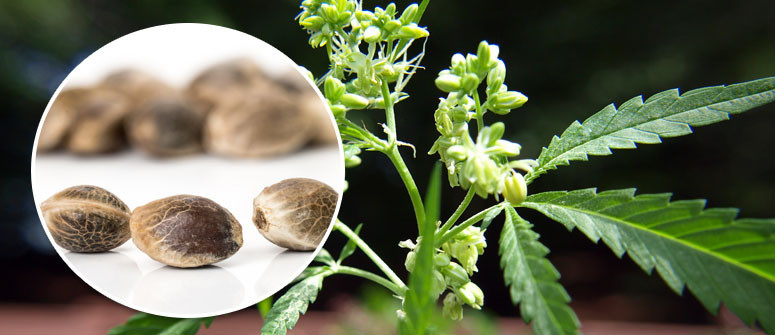In the realm of sustainable agriculture, an unforeseen participant has emerged, bringing with it a myriad of choices and opportunities—the humble hashish seed. Usually associated with leisure and medicinal use, cannabis seeds are now getting awareness for their prospective function in promoting sustainability in agriculture. In this posting, we’ll discover how hashish seeds can lead to sustainable farming practices, from soil health and fitness to useful resource efficiency.

Nutrient-Prosperous Soil Amendment:
Hashish vegetation are recognized for their capacity to prosper in a selection of soil ailments. Their deep root techniques improve soil composition and boost aeration, which can be notably effective for crops that comply with in their footsteps. On top of that, cannabis crops are efficient nutrient accumulators, absorbing excess vitamins and minerals from the soil. When these crops are harvested, the nutrient-wealthy leaves and stems can be returned to the soil as natural issue, enriching it in a natural way and reducing the want for synthetic fertilizers.
Biodiversity and Companion Planting:
In sustainable agriculture, sustaining biodiversity is very important for ecosystem stability. Cannabis crops can participate in a part in this by serving as companion crops. why not find out more , this sort of as terpenes, can act as normal pest deterrents, safeguarding neighboring crops from dangerous insects. Integrating hashish into a various planting plan can lead to a far more resilient and self-sustaining ecosystem, minimizing the reliance on chemical pesticides.
Carbon Sequestration:
As the environment grapples with the problems of climate improve, the importance of carbon sequestration in agriculture cannot be overstated. Cannabis plants are renowned for their immediate development and large carbon uptake all through photosynthesis. By incorporating cannabis into crop rotations, farmers can contribute to carbon sequestration, mitigating the impacts of greenhouse gasoline emissions. This method aligns with sustainable farming methods aimed at making much healthier, carbon-prosperous soils.
H2o Efficiency:
Water shortage is a pressing challenge in agriculture, prompting the require for h2o-economical crops. Hashish vegetation show a extraordinary capacity to thrive in assorted climates with varying h2o availability. Their deep roots allow them to obtain h2o from further soil levels, lowering levels of competition with shallower-rooted crops. By strategically integrating hashish into farming programs, specially in areas experiencing drinking water worries, farmers can improve h2o use and endorse sustainable water administration techniques.
Regenerative Farming Procedures:
Regenerative agriculture focuses on restoring and boosting the wellbeing of the soil ecosystem. Hashish, with its flexible and resilient character, can be a crucial participant in regenerative farming. The cultivation of cannabis using regenerative methods, these as small tillage and deal with cropping, can assist avert soil erosion, improve drinking water retention, and boost all round soil fertility. This holistic method to farming aligns with the ideas of sustainability, ensuring the extensive-time period wellbeing and productiveness of the land.
Summary:
In the evolving landscape of sustainable agriculture, hashish seeds are emerging as a worthwhile source for farmers in search of progressive and eco-helpful alternatives. From soil wellbeing to water efficiency, the assorted characteristics of hashish plants offer a multifaceted tactic to addressing the problems faced by contemporary agriculture. As we keep on to discover the probable of cannabis seeds in sustainable farming procedures, it gets to be evident that this unassuming seed may maintain the key to a greener, extra resilient future for our planet’s meals creation.